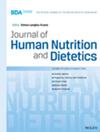Ultra-Processed Foods and Dietetic Practice: Findings From a Survey and Focus Group With UK Dietitians
Abstract
Background
Food processing converts fresh food into products and is of interest to nutrition professionals including dietitians given emerging evidence linking consumption of 'ultra-processed' products with health.
Objective
To explore dietitians' professional practice around the topic of processed foods and health, including their perceptions of individual food products.
Methods
An online survey was developed to evaluate professional involvement, confidence and views using a 5-point scale (i.e., 1 = never, 5 = daily). Respondents' perceptions of three products were also obtained, including level of processing (LoP) (from 1 = unprocessed to 5 = ultra-processed) and recommended frequency of consumption (FoC) (from 1 = avoid to 5 = several times/day). Eligible survey respondents (UK dietitians) were recruited via the British Dietetic Association and social media. Data were analysed descriptively. A focus group was held with five dietitians to discuss current practice around this topic. Verbal data were thematically analysed.
Results
Survey respondents (n = 366) possessed an average of 13 ± 9.8 years practising across various specialisms. Most discussed (82%) and provided guidance on (77%) processed foods and health monthly or more frequently, with 'high' levels of confidence (61%–59%), and agreed that healthy diets may include processed (94%) or 'highly/ultra' processed (71%) foods. Perceptions of each individual food product varied, yet the largest proportion of respondents selected LoP and FoC options for Tinned tomatoes: 'minimally processed' (54%), 'several times/week' (69%); mycoprotein mince: 'highly/ultra-processed' (57%), 'several times/month' (40%); and wholemeal bread: 'processed' (46%), 'several times/week' (58%). Focus group themes included uncertainties in definitions of ultra-processed and negative consumer perceptions around processing.
Conclusion
This first survey of UK dietitians on processed foods suggests that dietetic practice frequently involves this topic and that views on the role of these foods in healthy diets are varied. Respondents also possessed a range of perceptions on the LoP of individual products, and further work is now warranted to support future development for dietetic practice.


 求助内容:
求助内容: 应助结果提醒方式:
应助结果提醒方式:


